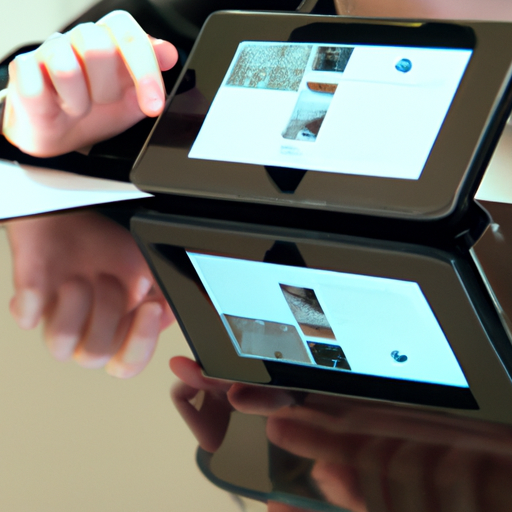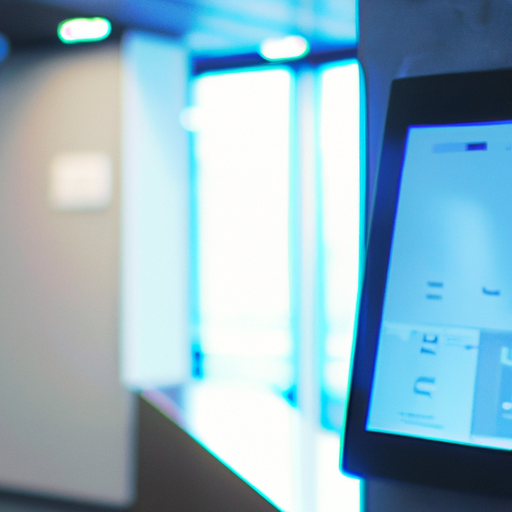
Benefits of Two-Way Guest Communication Technology in European Hotels
Are you tired of the traditional methods of guest communication in European hotels? Well, get ready to be introduced to a revolutionary technology that is set to transform the way hotels interact with their guests. Two-way guest communication technology is making its way to Europe through the Hotel Communication Network, and the benefits it brings are truly remarkable.
One of the key advantages of this technology is the enhanced guest experience it offers. With two-way communication, guests can easily communicate their needs and preferences to hotel staff, ensuring that their stay is personalized and tailored to their liking. Whether it’s requesting room service, asking for recommendations on local attractions, or simply seeking assistance with any issues, guests can now do so effortlessly through a user-friendly interface.
Furthermore, this technology also allows hotels to provide real-time updates and information to their guests. Gone are the days of outdated brochures and printed materials. With two-way communication, hotels can instantly share important announcements, such as changes in operating hours, upcoming events, or even weather updates. This not only keeps guests well-informed but also enhances their overall experience by providing them with timely and relevant information.
Another significant benefit of two-way guest communication technology is its ability to streamline hotel operations. By centralizing guest requests and inquiries, hotels can efficiently manage and prioritize tasks, ensuring that nothing falls through the cracks. This not only improves the efficiency of hotel staff but also leads to faster response times, resulting in increased guest satisfaction.
Moreover, this technology also enables hotels to gather valuable feedback from their guests. Through surveys and feedback forms, guests can easily share their thoughts and suggestions, allowing hotels to continuously improve their services. This direct line of communication between guests and hotel management fosters a sense of trust and transparency, ultimately leading to a stronger guest-hotel relationship.
In addition to these benefits, two-way guest communication technology also offers hotels the opportunity to upsell and cross-sell their services. By analyzing guest preferences and behavior, hotels can tailor their offerings and promotions to individual guests, increasing the likelihood of upselling additional services or amenities. This not only boosts hotel revenue but also enhances the overall guest experience by providing them with personalized recommendations and offers.
Furthermore, this technology also opens up new avenues for marketing and branding. Hotels can leverage the data collected through guest communication to create targeted marketing campaigns, reaching out to potential guests with personalized messages and offers. This not only helps hotels attract new guests but also strengthens their brand image by showcasing their commitment to providing exceptional guest experiences.
In conclusion, the introduction of two-way guest communication technology to Europe through the Hotel Communication Network brings a multitude of benefits to European hotels. From enhancing the guest experience to streamlining hotel operations, this technology is set to revolutionize the way hotels interact with their guests. So, get ready to embrace this innovative technology and take your hotel’s guest communication to new heights.
Implementing Two-Way Guest Communication Technology: Best Practices for European Hotels

Introducing Two-Way Guest Communication Technology to Europe through Hotel Communication Network
Implementing Two-Way Guest Communication Technology: Best Practices for European Hotels
In today’s fast-paced world, communication is key. This is especially true in the hospitality industry, where providing exceptional guest experiences is paramount. To meet the evolving needs of guests, European hotels are now embracing two-way guest communication technology. This innovative solution allows hotels to engage with their guests in real-time, enhancing their overall experience and satisfaction.
One of the best ways to implement two-way guest communication technology is through a hotel communication network. This network serves as a centralized platform that connects guests and hotel staff, facilitating seamless communication. By adopting this technology, European hotels can streamline their operations and provide personalized services to their guests.
So, what are the best practices for European hotels when it comes to implementing two-way guest communication technology? Let’s explore some key strategies that can help hotels make the most of this innovative solution.
First and foremost, it is crucial for hotels to choose a reliable and user-friendly communication platform. The technology should be intuitive and easy to navigate for both guests and staff. This ensures that everyone can effectively utilize the platform, maximizing its benefits. Additionally, the platform should be compatible with various devices, such as smartphones and tablets, to accommodate the preferences of different guests.
Once the communication platform is in place, hotels should encourage their staff to actively engage with guests through the system. This means promptly responding to guest inquiries, requests, and feedback. By doing so, hotels can demonstrate their commitment to providing exceptional service and create a positive impression on their guests.
Furthermore, hotels should leverage the power of automation to enhance guest communication. For instance, automated messages can be sent to guests before their arrival, welcoming them and providing essential information about their stay. This not only saves time for hotel staff but also ensures that guests feel valued and well-informed from the moment they book their stay.
Another best practice for European hotels is to personalize guest communication. By utilizing guest data and preferences, hotels can tailor their messages and recommendations to each individual guest. This level of personalization creates a more meaningful and memorable experience for guests, increasing their satisfaction and loyalty.
Moreover, hotels should use the two-way communication technology to gather feedback from guests. This feedback can be invaluable in identifying areas for improvement and enhancing the overall guest experience. By actively seeking feedback and addressing any concerns, hotels can continuously refine their services and exceed guest expectations.
Lastly, European hotels should regularly evaluate the effectiveness of their two-way guest communication technology. This involves analyzing data and metrics to measure the impact of the technology on guest satisfaction, operational efficiency, and revenue generation. By monitoring these key performance indicators, hotels can identify areas of success and areas that require further improvement.
In conclusion, implementing two-way guest communication technology through a hotel communication network is a game-changer for European hotels. By following best practices such as choosing a reliable platform, encouraging staff engagement, leveraging automation, personalizing communication, gathering feedback, and evaluating effectiveness, hotels can maximize the benefits of this innovative solution. With seamless and personalized communication, European hotels can elevate the guest experience and stay ahead in the competitive hospitality industry.
The Future of Guest Communication: How Two-Way Technology is Transforming European Hospitality
The Future of Guest Communication: How Two-Way Technology is Transforming European Hospitality
In today’s fast-paced world, communication is key. This is especially true in the hospitality industry, where providing excellent customer service is paramount. With the rise of technology, hotels are constantly looking for innovative ways to enhance guest communication. One such technology that is revolutionizing the European hospitality industry is two-way guest communication.
Traditionally, guest communication in hotels has been a one-way street. Guests would make requests or ask questions through the front desk or concierge, and hotel staff would respond accordingly. However, this method often led to delays and miscommunication, resulting in a less than satisfactory guest experience.
Enter two-way guest communication technology. This innovative solution allows guests to communicate directly with hotel staff through a variety of channels, including mobile apps, messaging platforms, and even voice assistants. By eliminating the need for intermediaries, this technology streamlines the communication process, ensuring that guests’ needs are met promptly and efficiently.
One of the key benefits of two-way guest communication technology is its ability to provide real-time assistance. Whether a guest needs extra towels, wants to book a spa appointment, or has a question about local attractions, they can simply send a message through the hotel’s communication network and receive an immediate response. This not only saves time for both guests and staff but also enhances the overall guest experience.
Moreover, two-way guest communication technology allows hotels to personalize their services. By collecting data on guest preferences and behavior, hotels can tailor their offerings to meet individual needs. For example, if a guest frequently orders room service, the hotel can proactively suggest menu items based on their previous orders. This level of personalization not only makes guests feel valued but also increases the likelihood of repeat bookings and positive reviews.
Another advantage of two-way guest communication technology is its ability to facilitate feedback and resolve issues in real-time. In the past, guests would often wait until the end of their stay to provide feedback or report any problems they encountered. With this technology, however, guests can voice their concerns immediately, allowing hotel staff to address them promptly. This not only prevents small issues from escalating but also demonstrates the hotel’s commitment to guest satisfaction.
Furthermore, two-way guest communication technology can help hotels streamline their operations. By automating certain tasks, such as check-in and check-out processes, hotels can reduce the workload on their staff, allowing them to focus on providing personalized service. Additionally, this technology can help hotels gather valuable data on guest preferences and behavior, enabling them to make informed decisions regarding their offerings and marketing strategies.
In conclusion, two-way guest communication technology is transforming the European hospitality industry by revolutionizing the way hotels interact with their guests. By providing real-time assistance, personalizing services, facilitating feedback, and streamlining operations, this technology enhances the overall guest experience and improves hotel efficiency. As technology continues to advance, it is clear that two-way guest communication is the future of guest communication in the European hospitality industry.


